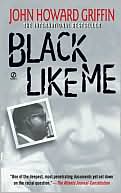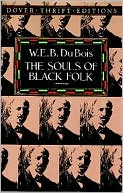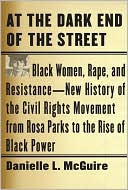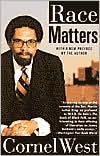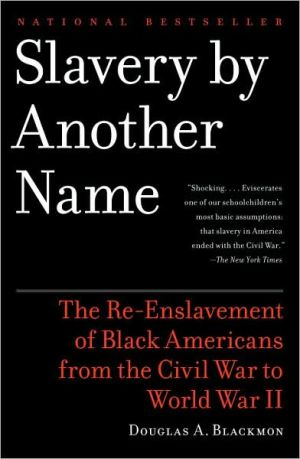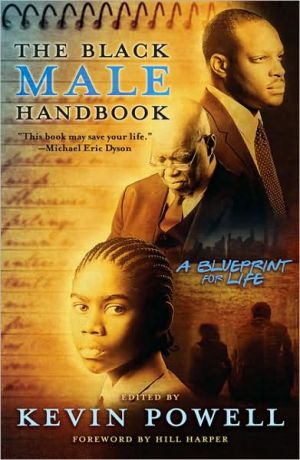How to Make Black America Better: Leading African Americans Speak Out
How to Make Black America Better opens with Tavis Smiley's twelve "challenges" to the African-American community. Among the issues that Smiley addresses are getting black Americans to "think black first," insisting that black Americans—including those in entertainment and the media—consider the consequences of their actions with regard tot he black community, and encouraging African Americans to put family first.\ At the heart of the book is a collection of original essays contributed by such...
Search in google:
How to Make Black America Better opens with Tavis Smiley's twelve "challenges" to the African-American community. Among the issues that Smiley addresses are getting black Americans to "think black first," insisting that black Americans—including those in entertainment and the media—consider the consequences of their actions with regard tot he black community, and encouraging African Americans to put family first.At the heart of the book is a collection of original essays contributed by such celebrated figures as Iyanla Vanzant, Aretha Franklin, Cornel West, Susan Taylor, Jesse Jackson, Jr., Dr. Dre, Nikki Giovanni, Al Sharpton, and Shaquille O'Neal. Ranging from one to four pags in length, each of these essays addresses vital issues in the African-American community, from affirmative action to black-on-black crime, political power to economic independence, race relations to family life, and much more.Finally, at the back of the book Smiley has included a high-powered selection of excerpts and highlights from the national symposium he organized in Los Angeles on the eve of the Democratic National Convention entitled "Advocacy in the Next Millennium: New Paradigms for Progress," featuring such luminaries as Marian Wright Edelman, Johnnetta Cole, Kweisi Mfume, Maxine Waters, and Henry Louis Gates.Essence - Patrick Henry BassThe indefatigable Tavis Smiley, host of BET Tonight and a commentator on the top-rated The Tom Joyner Morning Show, gathers some of the nation's most provocative heroes and sheroes to discuss obstacles and opportunities within our communities in How to Make Black America Better. Smiley offer deft advice that encourages us to take positive action to make things right.
Challenge #1\ Think Black First, 100 Percent of the Time\ Whenever we engage in business deals, whenever we have work for hire or contracts to be shared, or even if we're doing something as mundane as shopping, we should tell ourselves:\ "I must find someone Black for this job. I must find some- place Black to spend this money." After all, we cannot blame the white man for our problems if we don't try to solve them ourselves. Our mission should be, first and foremost, to uplift the race.\ How many times, in the past year alone, can you recall hearing another Black person rail about how we give our dollars to every community but our own?\ Thinking Black requires more than altering our behavior as consumers or deciding to settle down in Black neighborhoods. It requires us to really part with some ingrained economic habits. We have fine examples in pop culture. Rather than watch top fashion designers, such as Ralph Lauren and Tommy Hilfiger, corner the market by appropriating hip-hop styles, Sean "Puffy" Combs and Russell Simmons countered with clothing lines of their own: Sean John and Phat Farm. The same holds true for the line of FUBU gear. FUBU's name stands for "for us, by us." And young Black Americans have responded by making FUBU one of the country's largest-selling design labels. Walter Latham, noticing a paucity of venues for Black comedy, brought together four Black comedians, dubbed them "The Kings of Comedy," and put them out on a national tour that was wildly successful. When Latham was ready to do a movie about the tour, he went with a Black director, Spike Lee.\ Thinking Black first is an easy commitment to make. But don't be fooled; it is not the easiest commitment to keep. Thinking Black 100 percent of the time, however, doesn't mean we're required to act on our intentions all the time. In fact, getting our intentions translated into action can be a real challenge: At times, a Black alternative may not be available. And many of us have horror stories of being left in a lurch by a fellow Black person who simply failed to deliver. Just prior to the start of the 2000 Democratic National Convention in Los Angeles, for example, I sought out Black videographers to tape the symposium on advocacy I hosted (excerpts of which appear in this book). I hired three who came with good recommendations. To my dismay, they produced footage that was of poor quality and not at all worth the cost. We all have to realize that thinking Black is a two-way street. Our businesses can no longer limp along in the new millennium on the excuse that Black customers will support them. When we, as Black consumers, spend our money, we deserve quality, because by virtue of being Black we had to work harder to get our money. In my experience, this type of problem has been the exception rather than the rule. Just one experience like that can have a chilling effect, however, on the Black consumer; it can make us reluctant to choose Black the next time and leave us braced for substandard treatment when we do. I recognize that there are times when I can't do business with a Black person. But I always think Black first and always try to keep my business in the community.\ For some areas in our lives, thinking Black is automatic. When we want soul food, a good barber or beauty shop, or place to worship, we know where to go. Plenty of Black people take our cars to a Black mechanic, regardless of whether he has his own shop or is replacing parts beneath a shade tree in his Backyard. But more often than not, we don't take thinking Black to the next level. We don't put diligence into supporting Black stockbrokers, lawyers, agents, doctors, dentists, Web sites. We have ourselves convinced that in those arenas, the white man's ice is colder. We complain all the time about the difficulties of being Black, of being dissed, of being misunderstood in our day-to-day dealings. Yet we have to be challenged all the time to give such business to a fellow Black person. There are other areas where we just flat-out give our business away without even asking whether we could have found a Black person to support it, such as furniture design. C'mon, people! All of us! I shouldn't even have to say this in this book. Start by at least considering the Black possibilities. It offers one of the few sure ways for Black America to climb on out of the abyss. If we can't help ourselves and look out for each other, how can we expect anyone else to?
AcknowledgmentsIntroductionPt. ITen Challenges to Black America1Pt. IIWhat Leading African Americans Have to Say About How to Make Black America Better411Each Other's Keeper432History, Heritage, and Hope553How We, as African Americans, Can Improve Our Community and Our Country in the Twenty-First Century634Making Black America Better675Controlling Our Destinies716Hard Truths737The Freedom Symphony's Fourth Movement798Rising Just a Bit Higher859Cherished8710Updating Our Battles9311Getting Along9912Full Political Participation10113Rebuilding Black America10314Leveraging Our Power10715Behaving Better11316A Community of Accomplishment11517The Digital Age11918What We Can Do12119Try, Try, Try,...to Teach All Children Well12520Change the Children12921Making Black America Better Through Self-Knowledge13322The Challenge of Race and Education13923Historically Black Colleges and Universities14324Just for Today...15125Our Golden Age15326The New Millennium15527Jesus15728Know - Who You Were; Who You Are; Who You Choose to Be159Pt. IIIAdvocacy in the Next Millennium: A Symposium161
\ Patrick Henry BassThe indefatigable Tavis Smiley, host of BET Tonight and a commentator on the top-rated The Tom Joyner Morning Show, gathers some of the nation's most provocative heroes and sheroes to discuss obstacles and opportunities within our communities in How to Make Black America Better. Smiley offer deft advice that encourages us to take positive action to make things right. \ — Essence\ \ \ \ \ Publishers Weekly - Publisher's Weekly\ Exhorting black Americans to respect themselves and support their community, BET talk show host Smiley opens with 10 "challenges," focusing on education, health and money. These themes are underscored in the second section of the book, which features a collection of short entries from 28 black movers and shakers, from Maxine Waters to Shaquille O'Neal. While the litany of concerns and lists of remedies may seem repetitious, the net effect is a consensus on the needs of black America: more emphasis on educational excellence, more patronage of black enterprises, more voter registration and political involvement, and more pride in black history and culture. Reform of the prison system is urged by many, as well as a reckoning within the black church with homophobia and sexism. Spokespeople for very different perspectives sometimes offer strikingly similar thoughts: both critic Stanley Crouch and musician Sinbad wonder when it became hip to be dumb. The book ends with transcripts of two discussions with leading black thinkers held at the Democratic convention of 2000. Again, there's much consensus, thanks either to the absence of black Republicans or to a willingness to think inclusively. When educator Jawanza Kunjufu proposes a Ujamaa (cooperative economics) plan for black America, the moderator, attorney Raymond Brown, avoids a response, rather than criticize. Even if they give way to monologues, these two panel talks are longer on substance and shorter on rhetoric than the sometimes tedious earlier sections of the book. (Jan. 9) Forecast: While only the committed will buy and read this cover to cover, there are enough quotable bits to generate interest. Given Smiley's black media connections and the stellar list of contributors, visibility will be high and sales respectable. Copyright 2001 Cahners Business Information.\ \ \ BooknewsSmiley, a political commentator and talk-show host on the BET television network, has gathered 28 brief essays from prominent African-American writers, academics, politicians, and celebrities, who pick apart issues such as affirmative action, crime, political power, economic independence, and race relations. These are sandwiched between Smiley's "Ten Challenges to Black America" and excerpts from a panel discussion, held in Los Angeles before the 2000 Democratic National Convention, with Magic Johnson, Johnetta Cole, Cornel West, Maxine Waters, Jesse Jackson, and other speakers. Annotation c. Book News, Inc., Portland, OR (booknews.com)\ \

